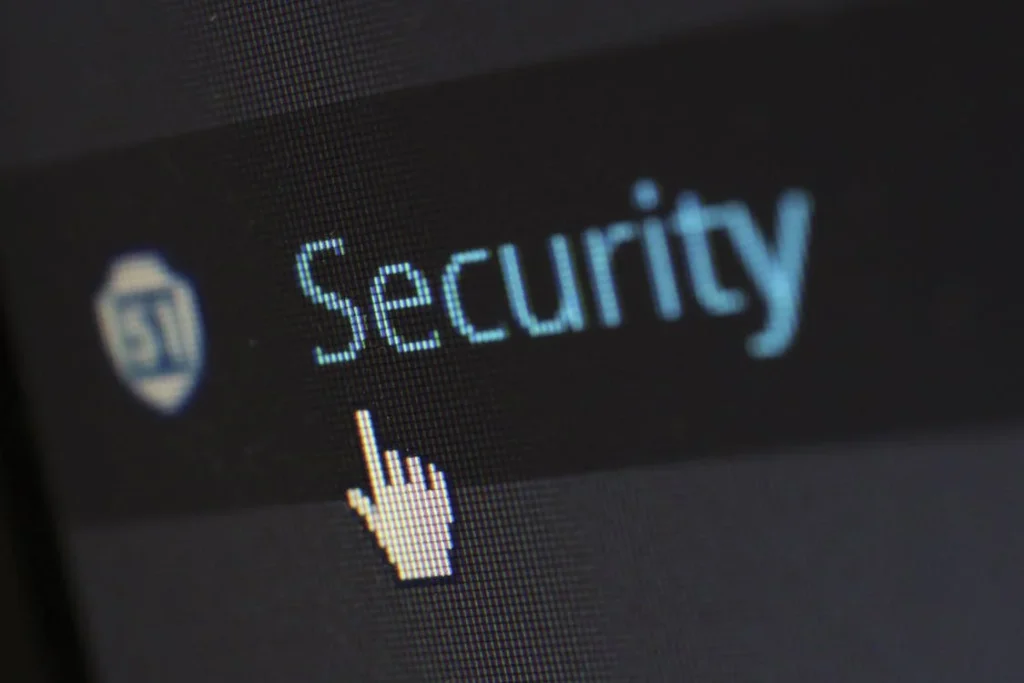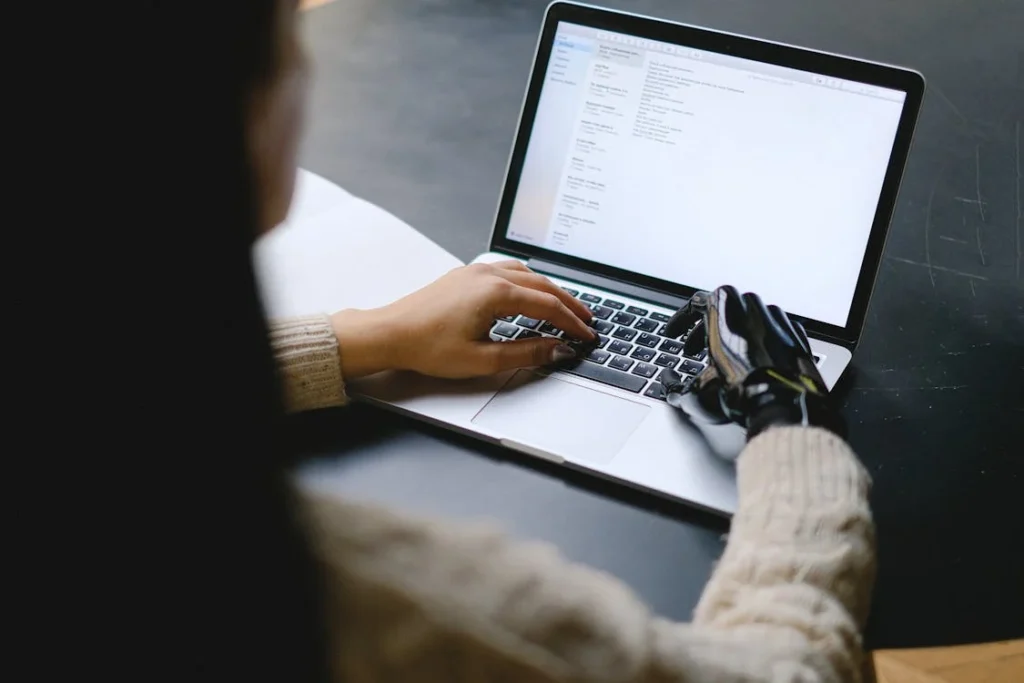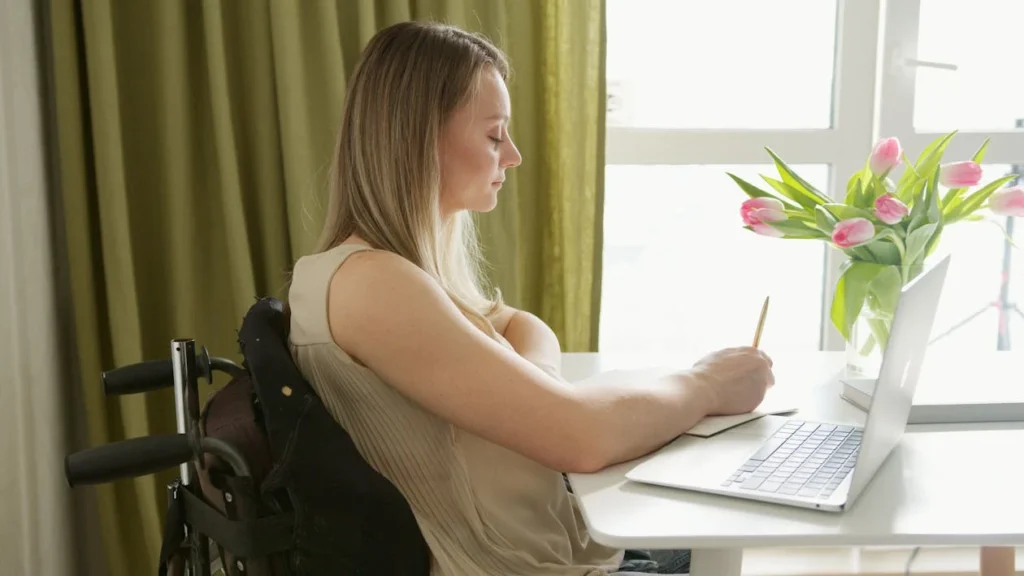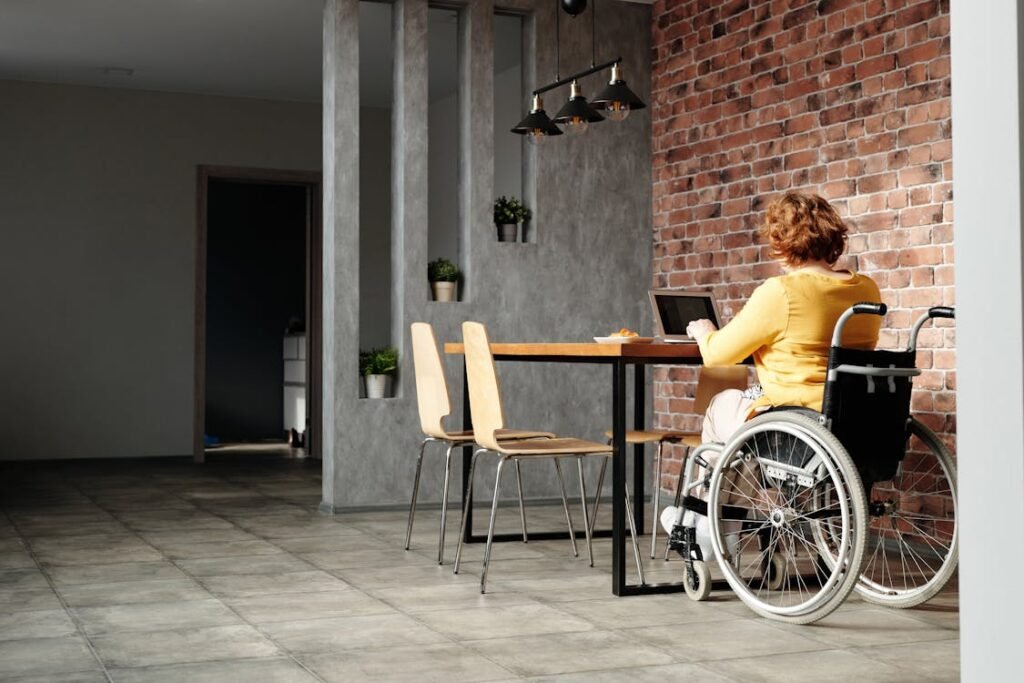Living with a disability can bring many challenges, especially when it comes to financial security. In India, the government offers several social security benefits to help disabled individuals lead a more independent and dignified life. However, the process of applying for these benefits can feel complicated, with paperwork, eligibility requirements, and different schemes to navigate.
If you or a loved one are looking to apply for disability benefits in India, this guide will walk you through everything you need to know. We’ll explain the different schemes available, how to apply, what documents you need, and how to increase your chances of getting approved. By the end of this article, you’ll have a clear roadmap to help you access the financial support you deserve.

Understanding Social Security Benefits for Disabled Persons in India
India has several government programs designed to support people with disabilities. These programs provide financial aid, medical assistance, and opportunities for employment.
The main goal of these benefits is to help disabled individuals live with dignity, reduce financial stress, and ensure they can participate fully in society.
Who is Eligible for Disability Benefits in India?
The first step in applying for social security benefits is understanding who qualifies. In India, disability benefits are provided under the Rights of Persons with Disabilities Act, 2016.
This law recognizes 21 types of disabilities, including blindness, hearing impairment, locomotor disability, cerebral palsy, autism spectrum disorder, and multiple sclerosis.
If you have any of these conditions and your disability is certified by a government hospital, you may be eligible for financial aid and other support.
One important factor is the percentage of disability. For many schemes, you need to have at least 40% disability, as certified by a medical board at a government hospital.
The certificate issued by the hospital serves as official proof of disability, which is required when applying for social security benefits.
Another key requirement is Indian citizenship. Most benefits are available only to Indian citizens, and some state-level schemes require residency proof of the particular state.
Income levels can also affect eligibility. While some schemes are open to all disabled individuals, others are meant specifically for people from economically weaker sections.
Government Programs That Provide Disability Benefits
The Indian government offers several programs to help disabled individuals financially. One of the most well-known schemes is the Indira Gandhi National Disability Pension Scheme (IGNDPS).
This program provides a monthly pension to people with severe disabilities who come from Below Poverty Line (BPL) families. The amount varies depending on the state, but it generally ranges from ₹300 to ₹500 per month, with some states offering additional top-ups.
Another major scheme is the National Handicapped Finance and Development Corporation (NHFDC), which provides loans at low interest rates to disabled individuals who want to start their own business or pursue higher education.
If you’re looking to improve your financial independence, this program can be a great option.
For government employees, the Employee Provident Fund Organization (EPFO) offers a Disability Pension Scheme under the Employees’ Pension Scheme (EPS), 1995.
If you have worked in a formal job and contributed to EPF for at least 10 years, you may qualify for a lifelong pension in case of total disability.
Additionally, many states have their own disability pension schemes. For example, Delhi’s Financial Assistance to Persons with Special Needs Scheme provides ₹2,500 per month, while Tamil Nadu’s Differently Abled Pension Scheme gives beneficiaries ₹1,000 per month.
Each state has different rules, so it is important to check with your local government office to understand what is available.

How to Apply for Disability Benefits in India
Filing for social security benefits as a disabled person in India involves several steps, but with the right guidance, the process can be smooth.
The most important thing to remember is that each scheme has its own requirements, and it is crucial to apply under the correct program to avoid delays.
The application process usually involves gathering the necessary documents, filling out the correct forms, and submitting everything to the right government office.
Getting Your Disability Certificate
Before applying for any benefits, you need to obtain a disability certificate from a government hospital. This certificate officially verifies your disability and its severity, which is essential for most government schemes.
To get this certificate, visit a government hospital in your district, where a medical board consisting of doctors and specialists will evaluate your condition.
Depending on the disability, you may need to undergo medical tests, after which the hospital will issue the certificate stating the percentage of disability. This certificate can be issued in either physical or digital format and remains valid for life unless specified otherwise.
For convenience, the Unique Disability ID (UDID) card has been introduced by the government. This card serves as a single document for various disability-related schemes and benefits.
You can apply for the UDID card online through the official government website. Having this card can make the process of applying for benefits much easier, as many schemes now accept it as proof of disability.
Submitting Your Application for Benefits
Once you have your disability certificate, the next step is to apply for the specific benefits you are eligible for. Most pension schemes, such as the Indira Gandhi National Disability Pension Scheme, require you to apply at your local social welfare office.
You will need to fill out the application form and submit it along with supporting documents, such as your disability certificate, Aadhaar card, income proof, and bank details.
Some states also allow online applications through their official websites, making the process more accessible.
For employment-related benefits, applications are usually handled by organizations such as the National Handicapped Finance and Development Corporation.
If you are applying for an education loan or a self-employment grant, you will need to submit additional documents like your educational certificates and business proposal.
Similarly, disability pension applications for government employees go through the Employee Provident Fund Organization, where applicants must provide employment records and EPF contribution details.
After submitting your application, there is usually a verification process where officials review your documents and may conduct a physical verification if required.
The approval timeline varies depending on the scheme, but it generally takes a few weeks to a few months. Once approved, the benefits are either directly transferred to your bank account or provided through government-run distribution centers.
Common Challenges and How to Overcome Them
While the government has made efforts to simplify the process, many applicants face delays and difficulties. One of the most common problems is missing or incorrect documentation.
To avoid this, ensure that all your documents are complete and up to date before submitting your application. If you are unsure about the requirements, visit your nearest social welfare office for guidance.
Another challenge is lack of awareness about available schemes. Many eligible individuals do not apply simply because they do not know about the benefits they can receive.
Checking government websites and seeking help from NGOs that support disabled individuals can be useful in finding the right schemes.
In some cases, applications get rejected without a clear reason. If this happens, you have the right to file an appeal or reapply with additional supporting documents. Seeking assistance from legal aid groups or disability rights organizations can help you navigate the appeals process.
Additional Support Beyond Financial Benefits
While financial assistance is a crucial part of social security for disabled individuals in India, there are several other types of support that can help improve the quality of life.
These include healthcare benefits, educational assistance, employment opportunities, and accessibility initiatives. Understanding these additional resources can help you maximize the support available to you and live a more independent life.
Healthcare Benefits for Disabled Individuals
Medical expenses can be a major burden for individuals with disabilities, especially when ongoing treatments, assistive devices, or rehabilitation are required.
The government provides free or subsidized medical treatment for disabled individuals through various health programs. One of the most important initiatives is the Rashtriya Swasthya Bima Yojana (RSBY), which provides health insurance coverage for families living below the poverty line, including people with disabilities.
This scheme covers hospitalization costs and major medical expenses, helping to reduce the financial strain of medical treatment.
In addition to RSBY, many states have specific health programs that offer free medical treatment, physiotherapy, and assistive devices such as wheelchairs, prosthetics, and hearing aids.
Government-run hospitals and institutions like the Artificial Limbs Manufacturing Corporation of India (ALIMCO) provide subsidized assistive devices to help disabled individuals improve mobility and independence.
If you require a prosthetic limb or any assistive device, you can apply through a local disability welfare office or a government hospital.
Educational Support and Scholarships
Access to education is a key factor in ensuring disabled individuals have equal opportunities in life. The government provides several schemes to support students with disabilities, making education more accessible at all levels.
Under the Sarva Shiksha Abhiyan (SSA), schools are required to provide inclusive education facilities, including special educators, assistive learning devices, and accessible infrastructure.
For higher education, scholarships are available through schemes such as the National Scholarship for Persons with Disabilities. This program provides financial assistance to students pursuing undergraduate, postgraduate, or professional courses.
Many universities and colleges also offer fee concessions, free hostel facilities, and support services for disabled students.
If you or your child is seeking higher education, checking with universities and government scholarship portals can help identify the best financial aid options available.
Employment Opportunities and Skill Development
Employment remains one of the biggest challenges for people with disabilities, but there are several government initiatives designed to help.
The Rights of Persons with Disabilities Act mandates that government and private companies reserve at least 4% of jobs for persons with disabilities.
If you are seeking a job, you can register at the Special Employment Exchange, which connects disabled job seekers with suitable employers.
Additionally, skill development programs are available through the National Handicapped Finance and Development Corporation. These programs offer vocational training, entrepreneurship support, and funding to help disabled individuals start their own businesses.
Several NGOs and government training centers also provide free training in areas such as computer skills, tailoring, and handicrafts, helping disabled individuals find stable employment and financial independence.

Accessibility and Legal Rights for Disabled Individuals
Beyond financial assistance and employment opportunities, accessibility and legal rights play a crucial role in ensuring that people with disabilities can lead independent and dignified lives.
The Indian government has taken significant steps to improve accessibility in public spaces, promote disability rights, and ensure legal protection against discrimination.
Understanding these rights and knowing how to access them can empower disabled individuals to advocate for themselves and improve their quality of life.
Accessible Public Spaces and Transportation
One of the major challenges faced by disabled individuals in India is the lack of accessible infrastructure. Many public places, including offices, schools, and transportation systems, have not been designed with accessibility in mind.
However, the government has introduced policies to address these issues through the Accessible India Campaign (Sugamya Bharat Abhiyan). This initiative aims to make public buildings, transportation, and digital services more accessible for people with disabilities.
Under this campaign, government buildings are being retrofitted with ramps, elevators, and accessible restrooms. Railway stations and airports are also working towards making platforms and terminals more wheelchair-friendly.
For those who rely on public transport, several states have introduced concessional travel schemes. Disabled individuals can apply for free or discounted fares on buses and trains, which can significantly reduce their transportation costs.
In some cities, wheelchair-accessible taxis and ride-hailing services have also been introduced, providing greater mobility options.
If you encounter accessibility issues in a government office or public place, you have the right to file a complaint under the Rights of Persons with Disabilities Act, 2016.
Many government offices have grievance redressal systems to address accessibility concerns, and organizations advocating for disability rights can assist in taking further action if necessary.
Legal Protections and Anti-Discrimination Laws
The Rights of Persons with Disabilities Act, 2016, is a comprehensive law that protects disabled individuals from discrimination in employment, education, and public services.
Under this law, no employer can deny a job opportunity to a qualified candidate solely based on their disability. Similarly, educational institutions are required to provide equal learning opportunities, and public spaces must ensure accessibility.
If you face discrimination in the workplace, school, or any public setting, you have the right to file a complaint with the appropriate authorities.
Many states have appointed Disability Commissioners who are responsible for addressing grievances related to disability rights. Legal aid services and disability rights organizations can also assist in filing complaints and ensuring that your rights are protected.
Additionally, people with disabilities have access to reservations in education and government jobs. Many universities reserve seats for disabled students, and government departments have specific quotas to promote inclusive hiring.
If you are applying for a job or an educational institution, it is essential to check the reservation policies and ensure that you receive the benefits you are entitled to.
Financial and Tax Benefits
Apart from social security benefits, disabled individuals and their families can also avail of tax benefits to reduce financial burdens. The Indian government provides income tax deductions under Section 80U of the Income Tax Act for individuals with disabilities.
Depending on the severity of the disability, tax deductions can range from ₹75,000 to ₹1,25,000 per year. Similarly, parents or guardians of disabled dependents can claim deductions under Section 80DD for expenses related to medical treatment, education, and rehabilitation.
To claim these tax benefits, you will need a valid disability certificate from a government hospital and proof of expenses, if applicable.
Consulting a tax expert or checking the official Income Tax Department website can help ensure you maximize the deductions available to you.

How to Appeal if Your Disability Benefit Application is Rejected
Even if you meet all the eligibility criteria and submit the necessary documents, there is still a chance that your application for disability benefits may be rejected.
This can be frustrating, but it is important to remember that a rejection is not the end of the road. You have the right to appeal and request a review of your application.
Understanding the reasons for rejection and knowing how to challenge the decision can significantly improve your chances of approval.
Common Reasons for Rejection
Applications for disability benefits may be rejected for several reasons. One of the most common issues is incomplete or incorrect documentation.
If you have submitted outdated income certificates, an incorrect disability certificate, or missing bank account details, your application may not be processed.
Another frequent reason is failure to meet eligibility requirements. Some schemes have strict income limits, and if your earnings exceed the specified threshold, your application may be denied.
Similarly, if your disability percentage is below 40%, you may not qualify for certain benefits. In some cases, government officials may reject applications due to clerical errors or misinterpretation of eligibility rules.
If your application is denied, the first step is to carefully review the rejection notice. Many times, the reason for rejection is clearly mentioned, and you may be able to resolve the issue by submitting additional documents or correcting errors.
If the reason is unclear, visiting the relevant government office and speaking to an official can help you understand the specific issue.
Steps to File an Appeal
The appeals process depends on the specific scheme under which you applied. In most cases, you can submit a formal request for reconsideration at the office where you originally applied.
This may involve filling out an appeal form and attaching any missing documents. Some states also allow appeals to be filed online through their government portals.
If your appeal is not resolved at the local level, you can escalate the matter by submitting a complaint to higher authorities, such as the District Disability Welfare Office or the State Social Welfare Department.
Many states have grievance redressal committees specifically for disability-related issues, and they can review your case more thoroughly.
In cases where you believe your application was unfairly rejected, you can seek legal assistance. Disability rights organizations and legal aid services can help you file a formal complaint with the Disability Commissioner’s office.
This office is responsible for ensuring that disabled individuals receive the benefits they are entitled to under the law.
Seeking Help from NGOs and Disability Support Groups
Navigating the appeals process can be challenging, but you do not have to do it alone. Many non-governmental organizations (NGOs) and disability rights groups provide free assistance to disabled individuals facing difficulties in accessing benefits.
Organizations such as the National Centre for Promotion of Employment for Disabled People (NCPEDP) and the Disability Rights India Foundation (DRIF) work to ensure that the rights of disabled individuals are upheld.
These organizations can help you understand your legal rights, guide you through the appeals process, and even provide legal representation if needed.
If you are struggling to get your disability benefits approved, reaching out to such groups can be a valuable step in securing the support you need.

Maintaining and Renewing Disability Benefits
Once you have successfully obtained disability benefits, it is important to ensure that you continue receiving them without any interruptions. Some benefits require periodic renewal, while others may need updated documentation over time.
Failing to comply with renewal requirements can lead to delays or discontinuation of payments, which can cause unnecessary financial stress. By staying informed and proactive, you can ensure that your benefits remain active without any issues.
Understanding the Renewal Process
The renewal process depends on the specific scheme you are enrolled in. Many disability pensions and financial assistance programs require beneficiaries to submit updated income proof, disability certificates, or bank details every few years.
This is done to verify that the recipient still qualifies for the benefit.
If you have a lifetime disability certificate, you may not need to renew your disability status. However, if your certificate was issued for a limited period, you must undergo a reassessment at a government hospital before it expires.
In such cases, it is best to start the renewal process a few months in advance to avoid delays.
For schemes such as the Indira Gandhi National Disability Pension Scheme, beneficiaries are often required to update their details with the local social welfare office annually.
Some states send renewal notices via SMS or post, but in many cases, you may need to check with the office proactively. If the renewal requires a physical verification, an official may visit your home to confirm your eligibility.
Keeping Your Bank and Aadhaar Details Updated
Most government benefits in India are directly transferred to bank accounts under the Direct Benefit Transfer (DBT) scheme.
If you change your bank account or update your Aadhaar details, you must inform the relevant authorities to avoid disruptions in payments. Failing to update your information can result in funds being withheld until corrections are made.
To update your details, visit the office where you initially applied for the benefit and submit a request for modification. Some states also offer online portals where beneficiaries can update their bank details or Aadhaar numbers without visiting an office.
Keeping your information current ensures that your benefits continue without unnecessary delays.
Reporting Changes in Disability Status or Financial Situation
In some cases, a beneficiary’s condition may improve, or their financial situation may change, affecting their eligibility for certain benefits.
If you experience a significant improvement in your disability status due to medical treatment or surgery, you may be required to undergo a reassessment.
Similarly, if your financial situation improves beyond the eligibility threshold of a particular scheme, you may need to report this change.
Failing to report changes in status can lead to complications later, including penalties or the requirement to repay benefits received.
If you are unsure about whether a change in your situation affects your eligibility, consulting with the social welfare office can help clarify your obligations.
What to Do If Your Benefits Are Suddenly Stopped
Sometimes, benefits may be discontinued due to technical reasons, missing paperwork, or government policy changes.
If your disability pension or financial aid suddenly stops, the first step is to check whether it is a temporary issue, such as a delay in government processing. Many times, missing a renewal deadline or failing to update Aadhaar details can lead to payment suspensions.
If you suspect that your benefits have been wrongfully stopped, visit the relevant government office and inquire about the reason. In most cases, submitting updated documents or completing a pending verification can resolve the issue.
If you are unable to restore your benefits through regular channels, reaching out to a disability rights organization or legal aid service can help you take further action.
Conclusion
Filing for social security benefits as a disabled person in India can feel overwhelming, but with the right information and guidance, you can successfully access the financial and social support you need. Understanding your eligibility, gathering the necessary documents, and following the correct application process are key steps in ensuring approval. If you face challenges along the way, knowing your rights and seeking help from government offices, NGOs, or legal aid organizations can make a significant difference.
Beyond financial benefits, India offers various programs to support disabled individuals in education, employment, healthcare, and accessibility. Making use of these resources can help you lead a more independent and fulfilling life. Keeping your documents updated, renewing your benefits on time, and staying informed about policy changes will ensure that you continue receiving the support you are entitled to.
If you or a loved one needs assistance in adapting to life with a disability, Robobionics is here to help. Our innovative prosthetic solutions, such as Grippy™, empower individuals to regain their independence and improve their quality of life. Book a free demo today and experience the future of advanced prosthetics.



